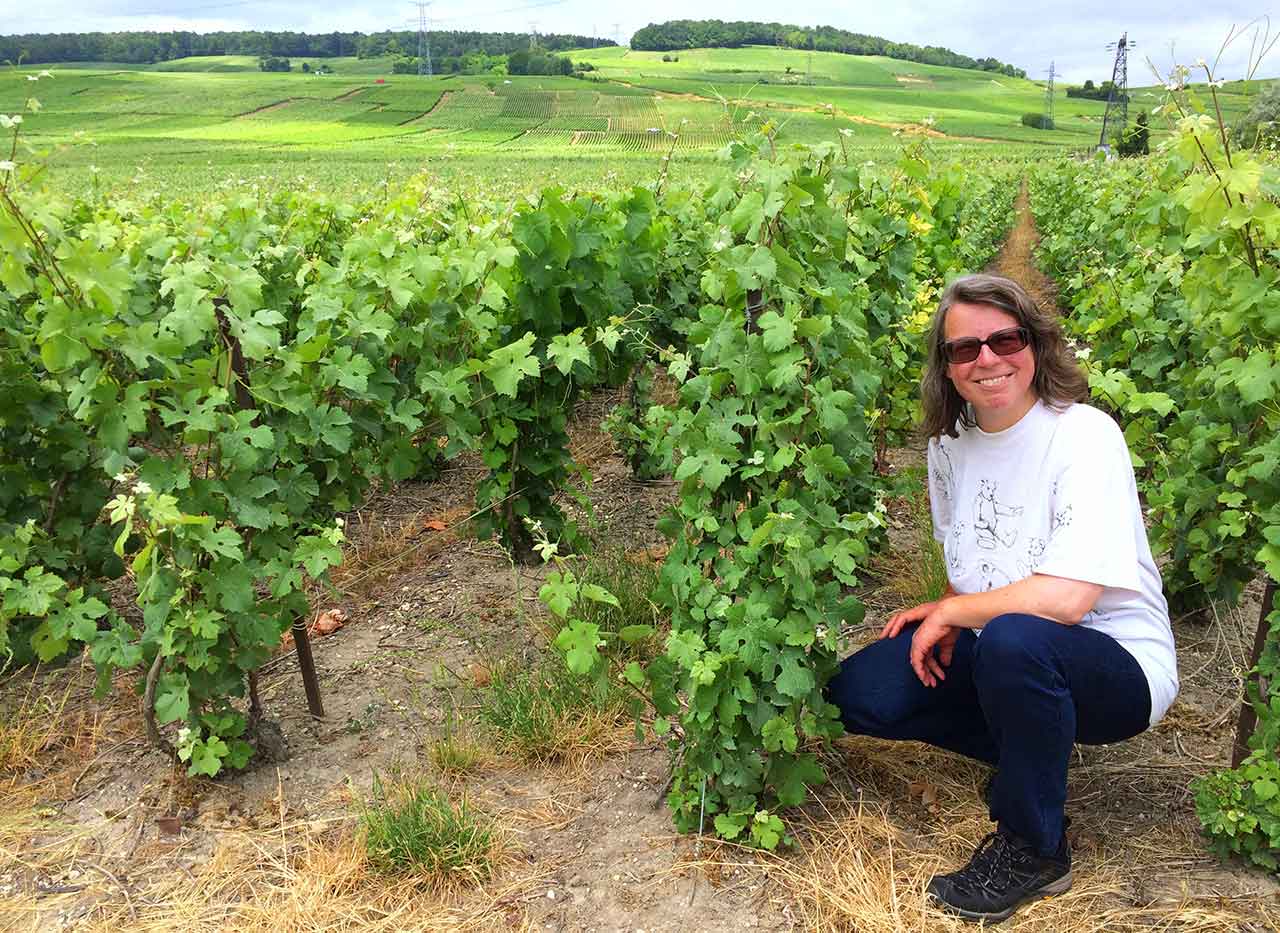Débourbage
Allowing the femented grape juice to settle so the solid detritus drops to the bottom of the vat before racking, where the juice is separated from the solids.
Decadent
Said of wines which feel rich and luxurious in the mouth.
Decanter
A vessel for holding wine poured from a bottle. See decanting below.
Decanting
Pouring wine from a bottle into another vessel, a decanting, for serving. Decanting wine allows the liquid to be separated from any sediment there may be in the bottle. It also helps to introduce some air into the wine just before it is served, which helps to bring out the flavours of the wine. See double decanting.
Dégorgement tardive
French for late disgorgement, said of sparkling wine which is matured sur lie for many years before disgorgement, where the last of the yeast sediment is removed.
Delicate
Tasting note indicating a light wine with a gentle flavour.
Delestage
French winemaking term describing the process of pumping out the fermenting liquid and then returning it the fermentation vessel.
Demi
Small wine bottle, equivalent to half a normal bottle.
Demi sec
French term for medium dry wine.
Denominación de Origen (DO)
Spanish designation for wine of a specific region, equivalent to the French AOC or Italian DOC. Now superceded by Denominación de Origen Protegida (DOP).
Denominação de Origem Controlada (DOC)
The highest wine classification in Portugal. The wine is from a specific region and there are tight quality controls.
Denominazione di Origine Controllata (DOC)
Italian designation for wine of a specific region.
Denominación de Origen Calificada (DOCa)
The highest wine classification in Spain. The wine is from a specific region and there are tight quality controls. The first DOCa was Rioja.
Denominazione di Origine Controllata e Garantita (DOCG)
Italy's highest wine classification. The wine is from a specific region, with a relatively low yield, and must pass quality tests.
Denominación de Origen Protegida (DOP)
Spanish designation for wine of a specific region, equivalent to the French AOC or Italian DOC. Introduced in 2016 to replaced Denominación de Origen (DO).
Dense
A wine tasting note indicating a wine with concentrated flavours, which has the potential to develop and open up as it matures.
Density
The mass (weight) per unit of volume, commonly measured in grams per millilitre (g/ml). Unfermented grape juice is more dense than water, alcohol is less dense. Wine is generally slightly less dense than water.
Depth
Wine with concentrated layers of flavour are said to be deep. Compare simple.
Dessert wine
Sweet wines, generally served alongside a dessert. In the US there is a specific legal definition of dessert wine as any wine with more than 14% alcohol.
Destemming
Separating the grapes from their stems before fermentation. Removing the stems can avoid unwanted tannin in the wine.
Diam
Manufacturer of 'technological' corks. See www.diam-closures.com
Digestif
A drink served at the end of a meal to aid digestion.
Disgorging, disgorgement
Sparkling wine is traditionally matured in the bottle, with the neck downwards to collect sediment. Disgorgement is the removal of the sediment by quickly freezing the neck, opening the bottle and removing a plug of ice with the sediment frozen into it.
Dissolved oxygen (DO)
The amount of oxygen dissolved in the wine. The greater this is the faster the wine will age.
DO
Short for dissolved oxygen (above) or Denominación de Origen, the now-superceded Spanish wine classification.
DOC
Short for the Portuguese wine classification Denominação de Origem Controlada or the Italian classification Denominazione di Origine Controllata.
DOCa
Short for Denominación de Origen Calificada, a Spanish wine classification.
DOCG
Short for Denominazione di Origine Controllata e Garantita, an Italian wine classification.
Doce
Portuguese word for sweet wine.
Dolce
Italian word for sweet wine.
Domaine
French word for a wine-growing estate.
Dosage
Addition of sugar syrup to a sparkling wine after disgorgement. The amount of sugar added determines the final sweetness of the wine.
Double blind tasting
A wine tasting where the taster has no prior knowledge of the wines being tasted.
Double decanting
Pouring wine from a bottle into a decanter, rinsing out the bottle to remove any sediment, then pouring the wine back into the bottle. This introduces plenty of air into the wine, helping to release its flavours, but allows the wine to be served from its bottle. See decanting.
Double magnum
A large wine bottle, equivalent to four normal bottles. Also called a Jeroboam.
Double pruning
Pruning vines twice during a season, rather than once. This method can improve vine health.
Douro
A wine region in northern Spain. The region is known for Douro red wines and for Port.
Doux
French word for sweet wine.
Drain cleaner
The term used at WineUncorked HQ for a wine so unpleasant that the only use for it is to pour it down the sink and hope it helps clean the plumbing.
Drip cloth
A cloth wrapped around a wine bottle as it is poured to catch drips.
Dry
A wine which is not sweet - where there is little residual sugar. Not the same thing as the sensation of your mouth feeling dry, which can be caused by tannins.
Drying out
Wine that is past its best. Also what happens to corks if a wine bottle is stored upright for a long period, resulting in oxidation.
Dulce
Spanish word for sweet wine.
Dull
A wine with an indistinct, earthy, uninteresting character.
Dumb
A wine with little flavour or interest. See closed.






